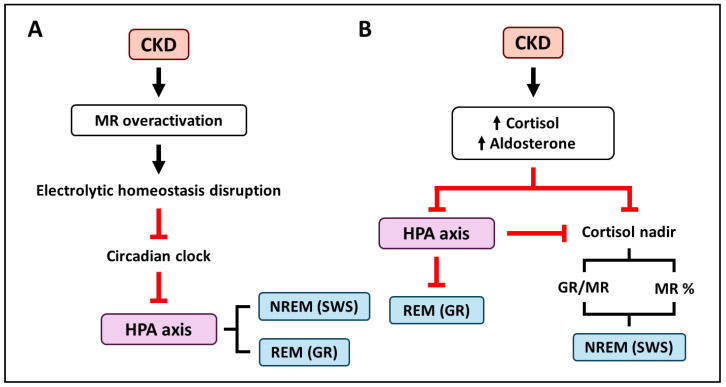Figure 4.
Potential mechanisms by which chronic kidney disease (CKD)-associated mineralocorticoid receptor (MR) dysregulation may lead to sleep disturbances. (A) The electrolytic imbalance observed in CKD through the overactivation of the MR could disrupt the circadian clock, which controls sleep and the hypothalamic-pituitary-adrenal (HPA) axis. Then, the altered HPA axis could dysregulate non-REM sleep phase (NREM) and rapid eye movement sleep phase (REM). (B) Hyperaldosteronemia and hypercortisolemia associated with CKD could lead to sleep disturbances in two ways. On one hand, through the HPA dysregulation and the consequent over occupancy of the glucocorticoid receptor (GR). On the other hand, increased levels of cortisol and aldosterone, as well as HPA axis dysregulation, lead to overactivation of the central GR and MR and entrance into the SWS phase.SWS: Slow-Wave Sleep.

